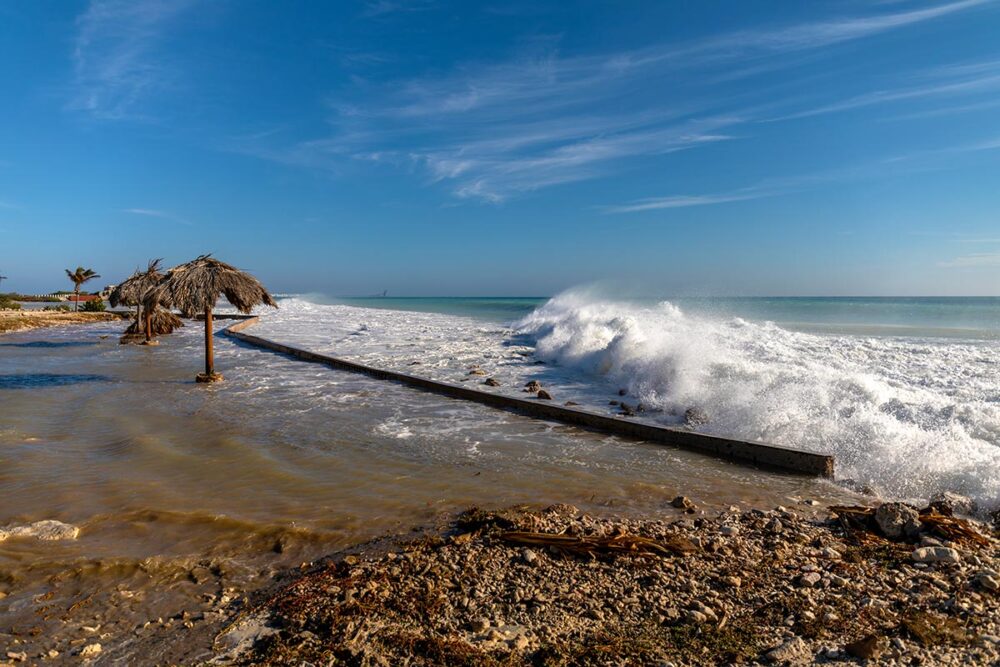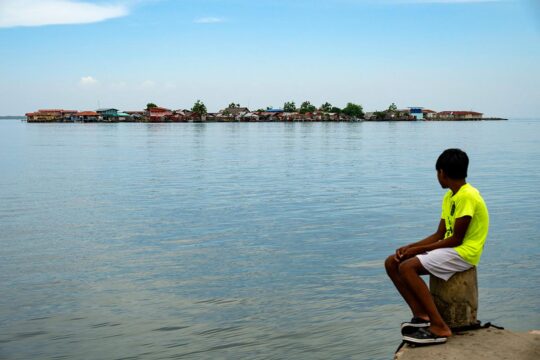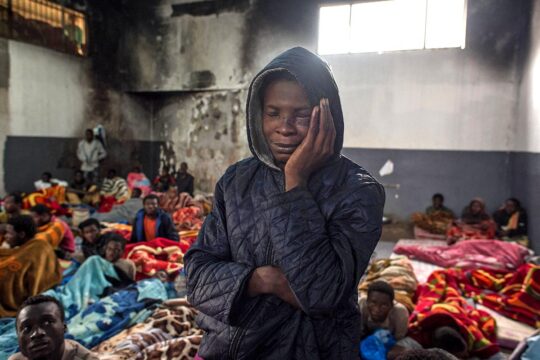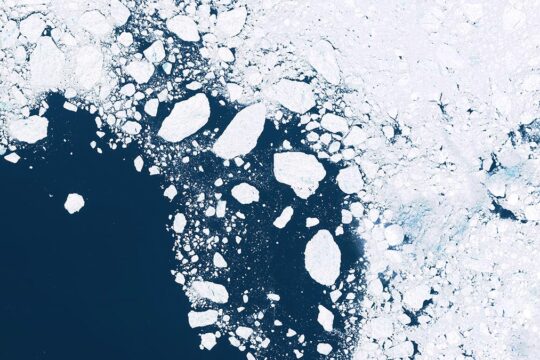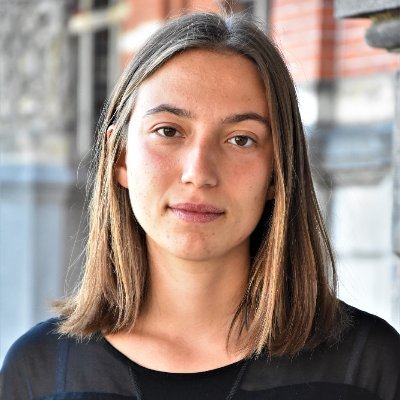“Where we used to work, play, walk, or fish outdoors, it’s now unbearable in the middle of the day”, said Onnie Emerenciana at the opening of this new ‘climate trial’ against the Dutch state. The 63-year-old comes from the Caribbean island of Bonaire, a special municipality of the Netherlands. He told the judges how the climate on the island “has changed in a generation; we feel it and see it. They [children] can no longer pick mangoes from the trees, now that they don’t grow anymore. Playing outside has been replaced by staying indoors behind closed doors, air conditioners blaring – for those who can afford it.” Emerenciana is a farmer and says cultivating the land has been disrupted by severe droughts and floods.
Speaking after him is Angelo Vrolijk, a 43-year-old employee at the judicial institution in Bonaire. Wearing a blue, white and yellow t-shirt with an artistic impression of the island flag, he said the Netherlands is their “motherland” and is experienced in protecting its European municipalities from water disasters. “Why isn’t that same protection applied to the Caribbean parts of our country?” He demands the Dutch government develop an “adequate plan so that we, our children, and future generations can continue to live on our island”. In Papiamento, a creole language spoken in the Dutch Caribbean, he concluded, “no ta pidi karidat. Nos ta eksigí hustisia.” [We don’t demand charity. We demand justice]
Eight Bonaireans before the district court of the Hague
On the 7 and 8 October, the district court of the Hague held hearings for this case brought by the NGO Greenpeace, representing 8 Bonaireans, including Emerenciana and Vrolijk, against the state for its alleged violations of the human rights of the people of Bonaire due to its failure to adequately act on climate change. This is the first case brought in Europe for adaptation, which refers to the actions taken to reduce vulnerability to the impacts of climate change. It is also one of the first climate cases after the July 2025 advisory opinion by the International Court of Justice (ICJ), and a similar position taken just before by the Inter-American Court of Human Rights. Lawyers are looking forward to how they will be interpreted.
Around 100 people filled the courtroom, including state officials, journalists, climate activists and Bonaireans, dressed in traditional clothing, the women wearing traditional dresses for the harvest festival and colourful headscarves. Over the two days, they heard Greenpeace and state lawyers discussing whether the Netherlands is doing enough to reduce its emissions and to protect Bonaire’s residents from the effects of climate change. The plaintiffs demanded that the government reduce CO2 emissions to zero by 2040 and develop concrete adaptation plans. The state rejected the claims and said it is already taking action.
Since October 10, 2010, the islands of Bonaire, St. Eustatius and Saba have become special municipalities of the Netherlands, part of a geographic region of the country located outside of Europe, the Caribbean Netherlands. In January 2024, after many months of dialogue with the government, Greenpeace Netherlands filed a lawsuit against the Dutch state. The organisation argued that the lack of an effective climate policy for the island violates the right to life, family life and prohibition of discrimination, contained in the European Convention on Human Rights, and the right to culture, in the International Covenant on Civil and Political Rights.
The hearings come 10 years after the Urgenda case, which led to a ruling that imposed on the government to cut its emissions. Since then, over 3,000 climate-related cases have been filed in 55 national jurisdictions, according to the UN Environment program figures.
Heat stress and coral bleaching
“Although we are already late, we can still make a change. But we have to act now”, says Vrolijk to Justice Info. He joined the case in 2023, “to fight the injustice and the inequality that we people have faced”. He is active in trade unions and was approached by the climate activists after a demonstration to obtain a better minimum wage for the residents of Bonaire, many of whom live in poverty and discrimination.
Originally from Aruba, a neighbouring Dutch island, Vrolijk moved to Bonaire over a decade ago. In the summons by the legal firm representing Greenpeace, he explains that now “when there is a storm, the roads that run along the sea, for example, sometimes flood completely. I am particularly concerned about the south side of the island: I am afraid that it will be flooded”. He also feels the effect of the climate getting “warmer and warmer”. “I feel short of breath. It also makes it harder for me to concentrate, which affects my work.”
According to a 2022 report by the Institute for Environmental Studies of the Free University of Amsterdam, “significant climate change impacts are anticipated in Bonaire” and “some effects, such as heat stress and coral bleaching, have already occurred”. While stating that more research is needed, the report explains how coastal inundation “is predicted to damage the built environment, infrastructure and tangible cultural heritage, and may cause physical and mental health issues.” The report concludes that “climate change is not an issue of the distant future, but rather one that is already occurring”.
Many Bonaireans are descendants of enslaved and indigenous people. “It’s like history repeats itself”, says Vrolijk. “In a way, it feels like you are a second-class citizen. Supposedly, it’s the European Netherlands and the Caribbean Netherlands. So why are we being treated differently? We have equal rights. We are in court to be heard and for the people to know that we have the same rights as European Dutch citizens”.
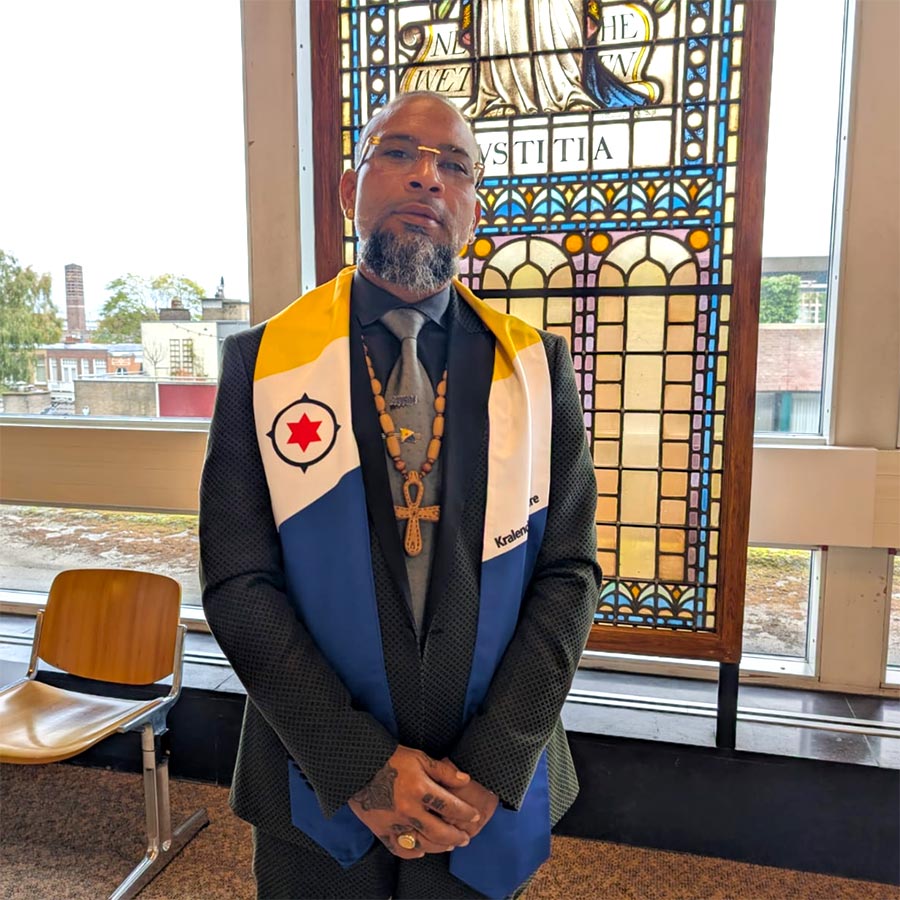
Mitigation, “an obligation and a right”
After the Bonaireans’ testimonies, lawyers Michael Bacon and Emiel Jurjens demanded that, in order to do its “fair share”, the Netherlands reduce its emissions to net zero ten years ahead of the planned 2050 deadline. They referred to another report showing that the country can reach that target without “damaging the economy or requiring adjustments to the standard of living of the population”. They also demanded that the Netherlands reduce its greenhouse gas emissions to keep global warming within 1.5 degrees, a threshold reinforced by the ICJ advisory opinion.
According to the lawyers, adaptation and mitigation are interconnected. Adaptation measures must be tailored to the expected rise in temperature, while sufficient mitigation [of the effects of climate change] can ensure their efficiency. They wrote in their plea note that while the “severity of the climate crisis is only increasing and solutions are now required with the utmost urgency”, the Dutch climate policy “does not reflect this urgency. That is unacceptable”. The lawyers argued that “adequate climate policy is not a political choice but an obligation and a right” and that “the State cannot hide behind European Union climate policy”, as it “cannot replace binding national obligations for the Netherlands.”
On the contrary, state lawyers Edward Brans and Katrien Winterink told the judges that the court does not have the authority to impose a legislative order on climate policies. And that Dutch obligations in terms of climate change depend on European Union policies, such as the net-zero emissions by 2050 and the implementation of the Fit-for-55 package towards 2030: “This is binding and nothing more,” they underlined in their writing plea.
“Still no adaptation plan for Bonaire”
On day 2, the court heard the parties’ arguments on adaptation to climate change. According to the plaintiffs’ lawyers, the state “has failed to take timely adaptation measures for Bonaire that meet the applicable legal standard. This is because there is still no adaptation plan. And the measures that the state has taken are still far from sufficient. The level of protection for the inhabitants of Bonaire is still much lower than the level of protection for the inhabitants of the European Netherlands”.
The plaintiff’s lawyers demanded in their plea that “an adequate adaptation plan be adopted by 1 April 2027 at the latest, or within a period to be determined by your Court”. According to them, this plan must be based on scientific research, knowledge, and the ideas of the citizens of Bonaire, and must consider structural challenges on the island, such as poverty.
Responding to the claim of discrimination, the state lawyers argued that there are indeed differences between Bonaire and the European municipalities, in their geography, climate and administration. Comparing them is “inappropriate”, according to Winterink. Also, according to the attorney, the Netherlands is already taking action to protect the island, with a revised national adaptation plan including the Caribbean expected next year. Winterink added that an adaptation plan is the responsibility of the local government.
Adaptation is a “major undertaking”
But for Greenpeace lawyers, the state is obliged to ensure that the human rights of all its inhabitants are protected in a practical and effective manner, and if the system in place do not deliver it, then “the state must take action instead of hiding behind the system”. Adaptation is a “major undertaking”, requiring, among other things, “significant financial investment”, which the local government does not have.
According to the Netherlands’ lawyers, in 2050, only the low-lying southern part of the island will be flooded, which is uninhabited. The impacts of climate change on Bonaire also need further research to ensure that “adaptation measures can be taken in accordance with the best available evidence”, they also said in their plea note. “There is no question that climate change has public health implications. As yet, there is little specific information on the possible development of climate-related health and disease risks in Bonaire."
“Greenpeace has not demonstrated, let alone proven, that there is a ‘real and imminent risk to life’”, they concluded. Under the European Convention on Human Rights, the state must take measures if there are imminent threats to the life and well-being of its citizens.
Novelty of the case
As a first in Europe, this case will “further inform the worldwide legal debate on the substance of legal obligations that rest on the state for adaptation”, says Jurjens to Justice Info. While the focus was more on mitigation in the past, he says the debate over adaptation grows, “because it is becoming clear that climate change is not stopping anytime soon”. On Bonaire, “the heat is so excruciating that it requires thinking about adaptation, and not in 10 or 20 years, but now”. According to the Colombia Climate School database, two previous cases involving adaptation were brought, one before the UN Human Rights Committee – by a group of eight Torres Strait Islanders from Australia – and another one before the Lahore High Court – by a Pakistan’s farmer challenging his government.
This is also one of the first cases combining mitigation and adaptation, says Eefje de Kroon, lead campaigner for climate justice at Greenpeace Netherlands. “Both are necessary for Bonaire”. The result of this case will directly apply to Bonaire’s sister islands, Sint Eustatius and Saba, as they are under the same legal status, she explains. For the three countries within the Kingdom of the Netherlands, Aruba, Curaçao and St. Martin, “it’s a bit more complex than that”, she says. “The role of the Dutch government isn’t as clear-cut in terms of human rights protection. But I do think that there is a strong argument to make that the Dutch government also has a responsibility towards the citizens in these countries within the framework of the kingdom, and this case will hopefully help to develop that further”.
Lawyers around the world will be watching this case, de Kroon believes. To her, the case will offer a “blueprint” on how to deal with the “unequal treatment” of different part of the population within a country. “I think that’s a colonial element here, but in general it’s discrimination. You can see in most countries that certain people are impacted harder than others by the climate crisis.”
A decision in the Bonaire case is expected on January 28th, 2026.


